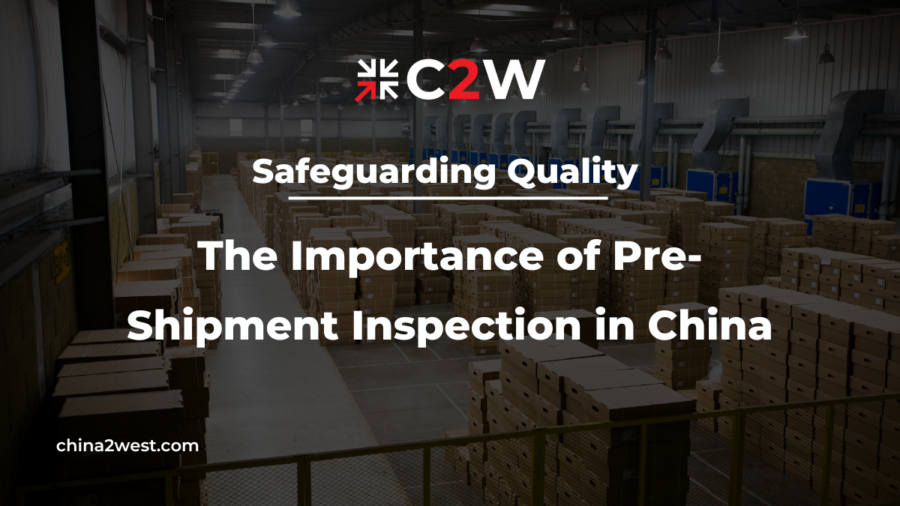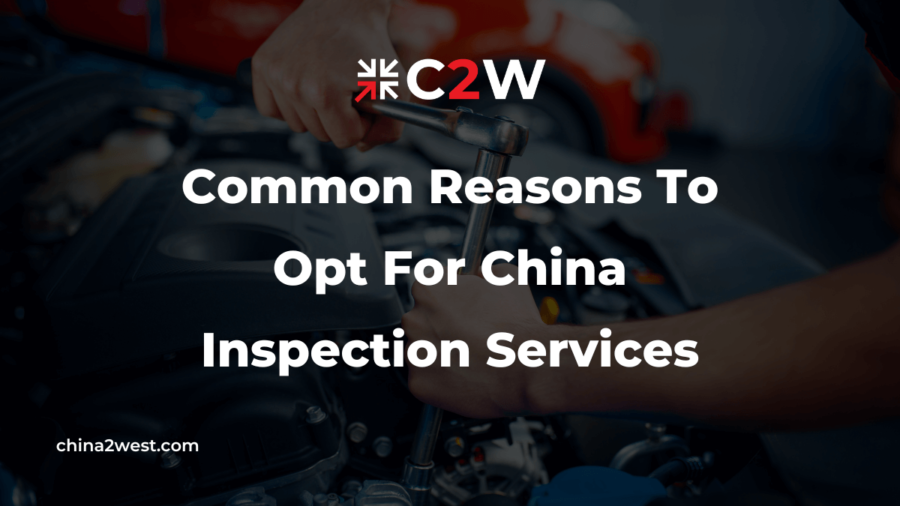In today’s global market, businesses often turn to China for cost-effective manufacturing. However, concerns over quality and compliance can dampen the excitement of importing goods. This is where pre-shipment inspections in China come into play. By implementing effective inspection processes, businesses can ensure that their products meet both their standards and international regulations.
What is a Pre-Shipment Inspection?
A Pre-Shipment Inspection (PSI) is a quality control process conducted on goods before they are shipped from the manufacturer to the buyer. This inspection is typically performed once the production of a bulk order is at least 80% complete. The primary goal of a PSI is to ensure that the products meet the specifications agreed upon by both the buyer and the seller in terms of quantity, quality, packaging, and labeling.
During a Pre-Shipment Inspection, an inspector examines a randomly selected sample of the goods using statistical methods (often based on the AQL, or Acceptable Quality Limit). They check for defects, verify the dimensions and functionality of the products, and ensure compliance with safety standards and regulations. The inspection helps identify any issues that could be rectified before the goods are shipped, thereby reducing the risk of receiving defective or non-conforming products. It also provides buyers with a level of assurance regarding their investment and minimizes the chance of disputes over product quality.
The Process of Pre-Shipment Inspection in China
The pre-shipment inspection process in China unfolds through a meticulously organized sequence designed to ensure product compliance and quality.
Defining Inspection Criteria
The buyer and the inspection agency collaborate to define the criteria and standards that the products must meet. This includes quality, quantity, packaging, and labeling specifications. The criteria are aligned with the buyer’s requirements and the regulatory standards of the destination country.
Sample Collection
The inspection is usually scheduled to take place when the production is 80-100% complete and all goods are ready for shipping. The specific items to be inspected are selected randomly to represent the overall batch, a method known as random sampling. This step is crucial for obtaining an accurate assessment of the product quality within the entire production lot.
Comprehensive Testing
The inspection itself is conducted on-site at the manufacturing facility. This phase allows the inspectors to not only examine the physical attributes of the products but also to assess the production processes, verify quantities, and conduct any necessary tests on the samples to ensure they meet the required standards. It’s an in-depth evaluation aimed at identifying any deviations or defects that could compromise the quality of the goods.
Detailed Reporting
Upon completion of the inspection, a detailed report is generated. This document encompasses all findings, including any non-conformities or issues discovered during the inspection. Photographs and test results are typically included to provide a comprehensive overview of the inspection outcomes. The report serves as a crucial tool for both the buyer and the manufacturer, offering insights into the next steps, whether that involves addressing identified issues before shipment or proceeding with dispatching the goods if they meet all the criteria.
Benefits of Conducting Pre-Shipment Inspections
Pre-shipment inspections (PSIs) serve as a critical checkpoint in the quality assurance process. By implementing these inspections, businesses can significantly mitigate risks associated with product quality and compliance, safeguarding both their reputation and bottom line.
1. Assurance of Product Quality and Specifications
Pre-shipment inspections are conducted when the production is at least 80% complete. This timing is strategic, allowing inspectors to thoroughly assess the quality of the goods against the client’s specifications and requirements. By checking the functionality, performance, and aesthetics of products, businesses ensure that the items meet the predefined standards and expectations. This process helps in identifying defects or non-conformities early, providing an opportunity for corrections before the products leave the factory floor. The result is a significant reduction in the rate of returns and increased customer satisfaction.
2. Compliance with Regulatory Standards
Each market has its unique set of regulatory standards that products must meet to be deemed compliant. Pre-shipment inspections play a pivotal role in ensuring that the products adhere to local, national, and international safety standards. This is particularly important for businesses operating in highly regulated sectors such as electronics, toys, and food products. By verifying compliance through PSIs, companies avoid the costly legal consequences of non-compliance, including fines, recalls, and damage to reputation.
3. Risk Reduction
Shipping non-compliant or defective goods can lead to serious consequences, including customer dissatisfaction, returns, and complaints, which in turn can damage a brand’s reputation and customer trust. Pre-shipment inspections help mitigate these risks by identifying issues before shipping, allowing businesses to address potential problems at the source. This proactive approach not only saves on the cost associated with returns and repairs but also protects the brand’s image in the competitive market.
4. Cost Efficiency
Detecting product defects or non-compliance after products have been shipped is significantly more expensive than addressing these issues beforehand. The logistics involved in returning goods, conducting repairs or replacements, and reshipping them add substantial costs and delays. Pre-shipment inspections can lead to significant savings by catching faults early on. Additionally, regular inspections drive suppliers to maintain high standards in production, ultimately leading to fewer defects and lower inspection costs over time.
5. Strengthen Supplier Relationships
Regular pre-shipment inspections provide continuous feedback to suppliers about their production quality and processes. This ongoing dialogue helps build stronger, more collaborative relationships with suppliers. It encourages transparency and fosters a mutual commitment to quality, which can lead to better product outcomes, innovation, and efficiency. Moreover, consistent quality checks can motivate suppliers to improve their standards, which benefits both parties in the long term.
Working with the Right Pre-Shipment Inspection Partner
Pre-shipment inspections are more than just a checkpoint; they are a fundamental part of a strategic approach to quality management in global trade. By ensuring that products meet both quality standards and regulatory requirements, businesses can protect themselves from the financial and reputational damages associated with poor-quality goods. Furthermore, the process enhances customer satisfaction, maintains supplier relationships, and promotes cost efficiency.
If you’re looking to implement or improve your pre-shipment inspection processes, or if you have any questions about how to effectively manage product quality in your supply chain, please don’t hesitate to reach out. Our team is ready to assist you in maintaining the highest standards of quality control and compliance.




